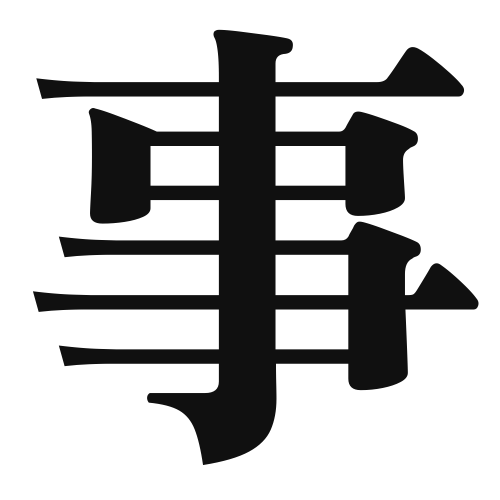1. Overview of Meaning
The kanji “事” (pronounced “ji” or “koto”) generally means “thing,” “matter,” or “affair.” It refers to events, actions, or situations that occur in life.
2. Formation and Radical
Formation of the Kanji: The kanji “事” is a combination of the phonetic component “口” (kuchi), which means “mouth,” and the semantic component “二” (ni), which can imply “two.” This kanji is classified as a compound character (会意文字), as it combines elements to convey a specific meaning.
Radical: The radical for “事” is “事” itself, which is often associated with actions or events.
3. Examples of Usage
Common Words and Phrases: Some frequently used words that include “事” are:
- 事務 (じむ, jimu) – office work
- 事実 (じじつ, jijitsu) – fact
- 事前 (じぜん, jizen) – beforehand
Example Sentences in Daily Conversation:
- この事について考えています。 (このことについてかんがえています。) – I am thinking about this matter.
- 彼は大事な事を教えてくれました。 (かれはだいじなことをおしえてくれました。) – He told me an important thing.
4. Synonyms and Antonyms
Similar Kanji: A similar kanji is “物” (もの, mono), which means “thing” but often refers to physical objects rather than abstract matters.
Opposite Kanji: An antonym is “無” (む, mu), which means “nothing” or “absence,” contrasting with the idea of a “thing” or “matter.”
5. Cultural and Historical Background
Relation to Japanese Culture: The kanji “事” is often used in various contexts in Japanese culture, including literature, business, and daily life, reflecting the importance of events and actions.
Proverbs and Idioms: One common idiom is “事実は小説より奇なり” (じじつはしょうせつよりきなり), which means “Truth is stranger than fiction,” highlighting the significance of real-life events.
